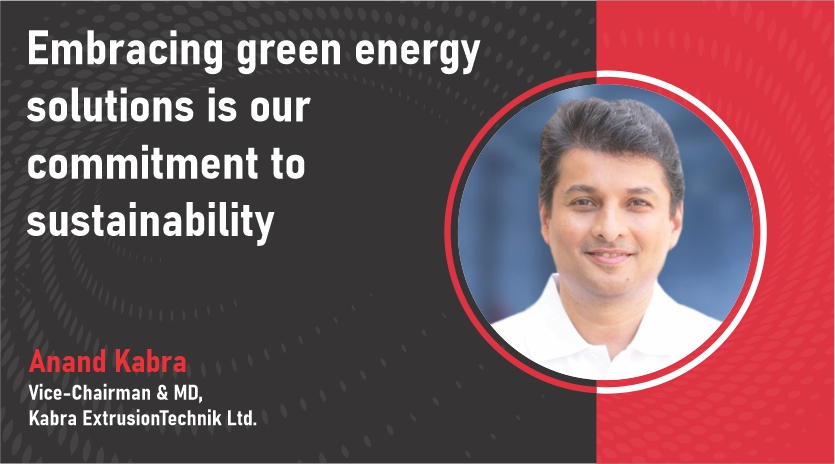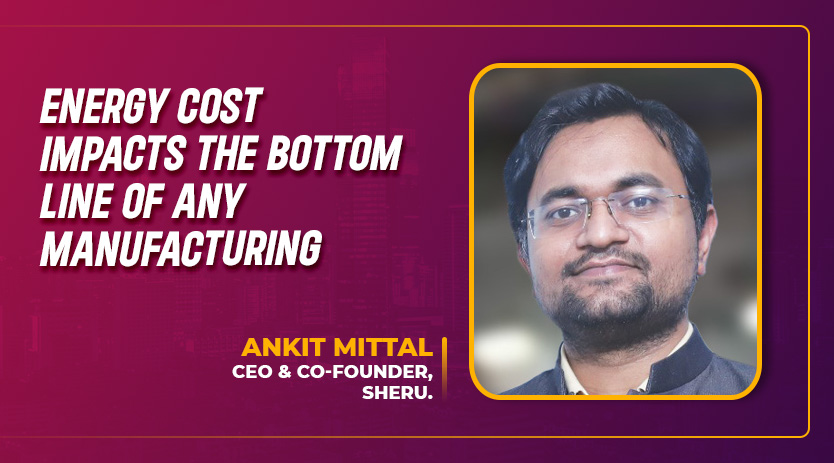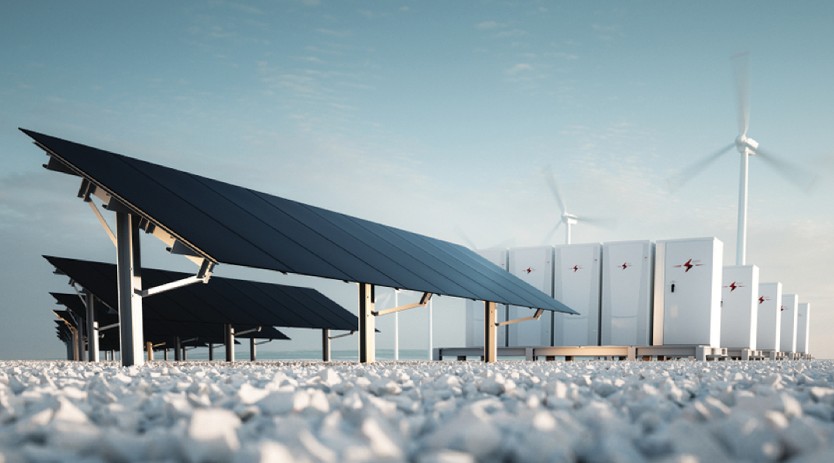The Future of Energy Storage: Meeting Real-time Energy needs with Thermal and Mechanical Options
May 2, 2023 1:58 pm
Energy storage systems have become increasingly popular among developed and developing countries as they provide a way to limit pollution and make better use of renewable energy sources.
The energy storage systems market involves thermal, electrochemical, and mechanical energy storage. Thermal energy storage includes the lead acid batteries, flow batteries, lithium-ion batteries, sodium-sulfur batteries, and others. Meanwhile, mechanical energy storage includes pumped hydro energy storage, compressed air and liquid energy, and flywheel energy storage. The demand for thermal energy is high across many applications, and therefore, the need for its storage has become increasingly important for future utilisation.
Many countries are seeking solutions to reduce their dependence on fossil fuels and reduce carbon emissions. Renewable energy sources such as wind, solar, and hydro are promising solutions to this problem. However, the intermittent nature of these sources makes it difficult to rely on them as a sole power source. Energy storage systems provide a way to store excess energy produced during peak hours and use it when demand is high.
Energy storage systems
Energy storage systems come with a high price tag despite their benefits. The high installation cost of these systems is a major obstacle to their widespread adoption. Due to the upfront costs, governments and businesses are often reluctant to invest in such systems. However, the long-term benefits of energy storage systems cannot be ignored. In addition to reducing pollution and greenhouse gas emissions, these systems can also help to stabilise energy prices by reducing the need for expensive peak-hour energy. Energy storage systems can also improve the grid’s reliability by providing backup power during outages.
Deliberating about energy storage technology, Ankit Mittal, CEO & Co-Founder of Sheru, says the facilities equipped with bidirectional energy vending machines are powered by the grid and store excess energy to send back when needed. This technology aids energy storage and management, ensuring a continuous and reliable power supply. To protect against power outages, Uninterruptible Power Supply provides the best industrial plant protection. Sharing his views on UPS, Sachin Bhalla, VP of Secure Power Division, India, and SAARC from Schneider Electric, mentions that UPS is designed to meet the power supply needs of computer rooms and large data hubs by conditioning voltage and providing battery backup. Power cuts can cause financial loss and damage to assets, so UPS is a key tool for regulating power distribution and saving critical data and information. Overall, it is better to prioritise uninterrupted power supply and develop innovative solutions to meet the diverse needs of manufacturing facilities.
In recent years, the importance of energy storage has been recognised as a critical component of renewable energy systems. The demand for energy storage solutions that can manage real-time networks and handle unpredictable week-to-week variations has created a range of opportunities for growth in the industry. From fast-responding batteries to thermal and mechanical options, various storage options are available to meet the needs of diverse end-users, such as healthcare, automotive, aerospace, and military.
As the cost of batteries and other storage solutions drop, corporate organisations are taking the lead to invest in maximum energy efficiency while contributing to clean energy transitions, states Sachin. With increasing confidence in renewable and cost efficiency, energy storage and management are becoming the most compelling factors for companies to focus on. Energy storage plays a crucial role in absorbing excess energy produced by renewable sources during periods of high production and pumping it back into the grid during periods of high demand. With adequate storage, the electricity grid can become completely carbon-free and powered entirely by renewable energy. As technology improves and costs come down, more countries are likely to adopt these systems to reduce pollution, stabilise energy prices, and enhance the reliability of their power grids.
While batteries have been the most visible energy storage technology in recent years, other technologies such as rectifiers and inverters are equally important in converting power from AC to DC for storage on the battery and distributing it to the load. As the industry continues to evolve and develop new solutions, the potential for a carbon-free future powered by renewable energy becomes increasingly achievable.
Innovative technologies
Innovative technologies for energy storage are gaining importance as we strive to tackle the short-term challenge of energy price volatility and security while reducing carbon emissions in the medium term. One such technology is Vehicle-to-Grid (V2G), which allows electric vehicle batteries to be used as energy storage devices. This technology enables vehicles to participate in energy storage and demand management, fully utilising the potential of their batteries. Ankit explains that integrating V2G technology with battery swapping through bidirectional vending machines allows aggregating batteries used in swapping applications for energy storage and demand management purposes.
Furthermore, advanced Lithium-ion batteries offer portability, fast recharging, low maintenance, and versatility. Solid-state batteries, on the other hand, provide even greater energy density, portability, and shelf life. By embracing these innovative technologies for energy storage, we can address the challenges we face today while paving the way for a more sustainable future.
Smart energy management for manufacturing facilities
The Internet of Things has been instrumental in moving towards digitisation, quips Sachin Bhalla. Smart energy management has become crucial for manufacturing facilities in the digital age with the help of the Internet of Things (IoT). By providing real-time data to stakeholders, IoT has facilitated seamless information flow and helped reduce carbon emissions, decreasing operating costs for manufacturing units.
Energy management has enabled companies to participate actively in the energy market, particularly during high energy prices. By adopting a holistic approach to energy investment, manufacturing facilities can reduce energy consumption and waste while transitioning to cleaner energy sources using advanced technologies, says Sachin Bhalla.
Conclusively, the high installation cost of energy storage systems remains a major obstacle to their widespread adoption. However, the benefits of these systems cannot be ignored. Governments and businesses must work together to find solutions to reduce the upfront costs of these systems and incentivise their adoption. Doing so can create a more sustainable and reliable energy future for all.
Future outlook
The thermal management market is experiencing growth due to increased demand for thermal management solutions and systems in various end-use industries, such as healthcare, automotive, aerospace and military. The thermal energy storage market is being driven by the rising adoption of renewable energy resources and the growing demand for uninterrupted power supply due to rapid industrialisation worldwide.
The global energy storage system market is witnessing significant growth due to the rising demand for sustainable energy solutions and the need to reduce carbon emissions. Manufacturers are utilising various expansion strategies to gain a substantial market share and strengthen their position in the market. While energy storage systems are gaining popularity, the high installation cost remains a major challenge to the market. However, the increasing awareness of the benefits of energy storage systems and technological advancements are expected to drive the market’s growth in the coming years. Despite the challenges, the future looks promising for energy storage systems.
Sachin Bhalla, VP – Secure Power Division, India & SAARC, Schneider Electric.
“Increasing energy efficiency, investing in renewable and cost efficiency lays focus on energy storage, and thus, energy management solutions empower users.”
Ankit Mittal, CEO & Co-Founder, Sheru.
“Bidirectional technology aids energy storage and management by storing energy when it is in excess or cheaper and sending it back to the grid when the grid needs the power.”
Cookie Consent
We use cookies to personalize your experience. By continuing to visit this website you agree to our Terms & Conditions, Privacy Policy and Cookie Policy.












